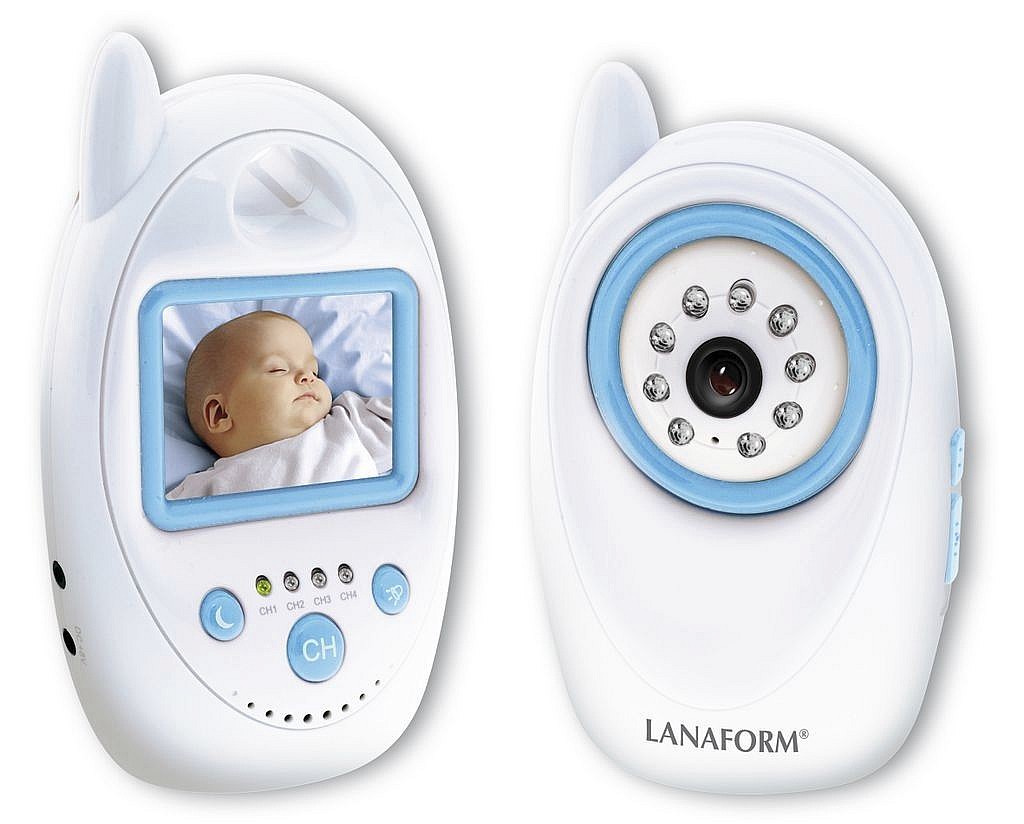
A BABY MONITOR, ALSO KNOWN AS A BABY ALARM, IS A RADIO SYSTEM USED TO REMOTELY LISTEN TO SOUNDS MADE BY AN INFANT. AN AUDIO MONITOR CONSISTS OF A TRANSMITTER UNIT, EQUIPPED WITH A MICROPHONE, PLACED NEAR TO THE CHILD. IT TRANSMITS THE SOUNDS BY RADIO WAVES TO A RECEIVER UNIT WITH A SPEAKER CARRIED BY, OR NEAR TO, THE PERSON CARING FOR THE INFANT.
A baby monitor, also known as a baby alarm, is a radio system used to remotely listen to sounds made by an infant. An audio monitor consists of a transmitter unit, equipped with a microphone, placed near to the child. It transmits the sounds by radio waves to a receiver unit with a speaker carried by, or near to, the person caring for the infant. Some baby monitors provide two-way communication which allows the caregiver to speak back to the baby (parent talk-back). Some allow music to be played to the child. A monitor with a video camera and receiver is often called a baby cam.

One of the primary uses of baby monitors is to allow attendants to hear when an infant wakes, while out of immediate hearing distance of the infant. Although commonly used, there is no evidence that these monitors prevent SIDS, and many doctors believe they provide a false sense of security.[1] Infants and young children can often be heard over a baby monitor in crib talk, in which they talk to themselves. This is a normal part of practicing their language skills.
Child safety seats are seats designed specifically to protect children from injury or death during collisions.
Various methods of baby transport have been used across different cultures and periods and for different ages of child. Methods can be divided between wheeled devices including baby carriages (carrycots in British English), strollers (pushchairs), slings, backpacks, baskets, infant car seats and bicycle carriers.
CHILD SAFETY SEATS ARE SEATS DESIGNED SPECIFICALLY TO PROTECT CHILDREN FROM INJURY OR DEATH DURING COLLISIONS.
VARIOUS METHODS OF BABY TRANSPORT HAVE BEEN USED ACROSS DIFFERENT CULTURES AND PERIODS AND FOR DIFFERENT AGES OF CHILD. METHODS CAN BE DIVIDED BETWEEN WHEELED DEVICES INCLUDING BABY CARRIAGES (CARRYCOTS IN BRITISH ENGLISH), STROLLERS (PUSHCHAIRS), SLINGS, BACKPACKS, BASKETS, INFANT CAR SEATS AND BICYCLE CARRIERS.
A baby gate or child safety gate is a protective barrier designed to prevent young children (ages 6-24 months) from accessing areas of a home where they might be unsafe, such as stairways and kitchens.
A BABY GATE OR CHILD SAFETY GATE IS A PROTECTIVE BARRIER DESIGNED TO PREVENT YOUNG CHILDREN (AGES 6-24 MONTHS) FROM ACCESSING AREAS OF A HOME WHERE THEY MIGHT BE UNSAFE, SUCH AS STAIRWAYS AND KITCHENS.